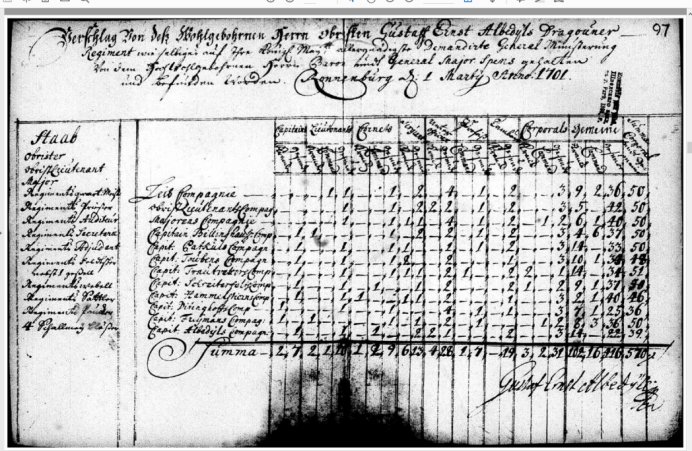Major General Mengden then said that the letters received must give guidance. Does the King of Poland wish that the army marches?
Then there was a discussion concerning fodder. Would it be possible to send smaller detachments or would they be attacked?
Major General Güntersberg said that there was a risk that if the army marched and the expedition ended badly there would be repercussions.
Colonel Steffken, who along with associate judge Helmersen had been on a mission to Pac, was called in. First Pac's letter to the Governor General was read. The Hetman stated that the Swedish army could not be permitted to pass through Samogitia. The Treaty of Oliva clearly forbade it. Colonel Steffken said that Pac had warned that the army would encounter many problems such as the rivers and lack of fodder and provisions. Furthermore, it was Pac's task to protect the border and he had called the nobility to arms. They would fight any intruder. Steffken added that there was a Russian envoy in Pac's headquarters. He was on his way to the Emperor and it was said that he had claimed that when the Swedish army left Livonia the Czar would attack. As Steffken left Pac had ordered his forces to march towards the border. Forces were also gathering in the Duchy of Courland and they were rumoured to be quite strong.
Major General Güntersberg asked if the King had ordered the army to force its way through Lithuania if it wasn't allowed through. Governor General Horn replied that he had not received any replies to his most recent letters.
To be continued...


